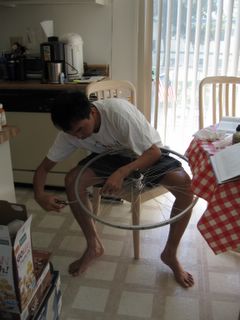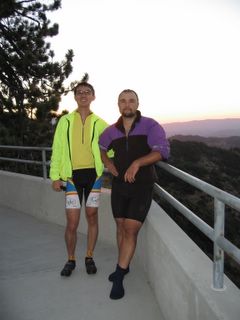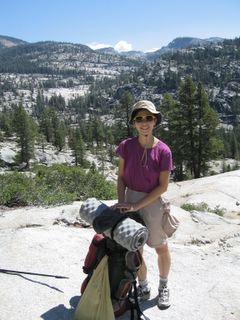Paul Graham makes republican mistake #1
The problem with wealthy entrepreneurs who got lucky is that they attribute their success and wealth to their skill, intelligence and risk taking ability, while a lot of their wealth actually comes from luck. But because they can't admit that (since that would be an admission that they do not deserve their wealth), they have to come up with justifications as to why the universe made them a multi-millionaire.
The problem with Paul's thesis is that I can think of many many ways you can reduce inequality without reducing risk-taking behavior. Here's an example: supposed you provide universal healthcare. A large proportion of U.S. bankruptcies are driven by medical bills due to lack of health insurance. Suddenly, anyone who wanted to start a business can do so without losing their healthcare. I'd argue that more people would start businesses and take more risks than a national policy where your healthcare is tied to your job, effectively locking you to that job if you don't have a lot of money and have one or more pre-existing conditions.
There's an obvious place to tax people if you truly believe Paul's thesis (which I don't buy into --- I've seen too many folks luck into wealth to think that wealth is in any form "deserved" by most people who make that kind of money): inter-generational transfers. In other words, we should tax inheritances heavily and severely. But of course, the Republicans we see in congress are the ones most enthusiastic about eliminating the estate tax.
Monday, August 29, 2005
Sunday, August 28, 2005
Flight Vol 2
Not nearly as good as the first one, mostly because the large number of artists/writers contributing such disjoint visions brings into focus how the graphic strip art form needs many more pages to provide character and narrative. Nevertheless, there are a few good pieces: The Robot and the Sparrow, Jake Parker, Destiny Xpress Jen Wang, The Orange Grove, Kazu Kibuishi, Dust on the Shelves, Banniester, The Flying Bride, Giuseppe Ferrario.
Once again, I don't feel like I want to own this book, but I'm glad I did see read it once. If the really good artists here start producing their own books, it might be worth following up on them.
Not nearly as good as the first one, mostly because the large number of artists/writers contributing such disjoint visions brings into focus how the graphic strip art form needs many more pages to provide character and narrative. Nevertheless, there are a few good pieces: The Robot and the Sparrow, Jake Parker, Destiny Xpress Jen Wang, The Orange Grove, Kazu Kibuishi, Dust on the Shelves, Banniester, The Flying Bride, Giuseppe Ferrario.
Once again, I don't feel like I want to own this book, but I'm glad I did see read it once. If the really good artists here start producing their own books, it might be worth following up on them.
Saturday, August 27, 2005
A tough ride
Went on a Western Wheelers ride today. Everyone was scary fast! Sure, it's the end of the summer, so folks are as fit as they're going to be, but I'd just done a Tour of the Alps not that long ago, and it's scary how much fitter everyone else was. Of course, I could use the excuse that I planned my peak for that tour, but seriously, I'm a recreational rider. I don't peak.
I did meet someone I rode with 13 years ago, when I first started riding with the Western Wheelers, but before I dropped out. It was funny when I first said, "oh we rode together 10 years ago", she interrupted and said, "No, it's longer than that. It was 6 boyfriends ago." Thinking back upon it, I'd had 6 jobs (well, 2 at the same company) since then as well, so it's nice to know that some people switch boyfriends as often as I switch jobs.
Anyway, I'm now incredibly exhausted, despite having only ridden 72 miles with 7500' of climb. As they say, it's not the distance or the climb, it's the pace --- we did it all in 6 hours, and that's including stops!
Went on a Western Wheelers ride today. Everyone was scary fast! Sure, it's the end of the summer, so folks are as fit as they're going to be, but I'd just done a Tour of the Alps not that long ago, and it's scary how much fitter everyone else was. Of course, I could use the excuse that I planned my peak for that tour, but seriously, I'm a recreational rider. I don't peak.
I did meet someone I rode with 13 years ago, when I first started riding with the Western Wheelers, but before I dropped out. It was funny when I first said, "oh we rode together 10 years ago", she interrupted and said, "No, it's longer than that. It was 6 boyfriends ago." Thinking back upon it, I'd had 6 jobs (well, 2 at the same company) since then as well, so it's nice to know that some people switch boyfriends as often as I switch jobs.
Anyway, I'm now incredibly exhausted, despite having only ridden 72 miles with 7500' of climb. As they say, it's not the distance or the climb, it's the pace --- we did it all in 6 hours, and that's including stops!
Friday, August 26, 2005
Dealers of Lightning, Michael Hiltzik
Xerox's Palo Alto Research Center (PARC) invented the concepts that went into the modern computer that we use today. Mice, icon based bitmapped displays, WYSIWIG word processors, ethernet, file servers, object-oriented programming, and the laser printer. Yet Xerox did not make money from any of these inventions except the laser printer, and even then fumbled it by introducing it too late. This book is an indictment of Xerox's corporate culture, its short-sighted executives, and is the perfect illustration of my thesis that a technology company (or any company affected by technology) that is not mature must be run by engineers for it to be successful beyond the short term. Of course, that's not the only factor. Everything else also has to be done right (marketing, sales, etc), but if the key executives do not have the vision to pursue technological break-throughs and turn them into product, you might as well not bother funding an R&D lab.
Xerox's top executives were for the most part salesmen of copy machines. From these leased behemoths the revenue stream was as tangible as the "click" of the meters counting of copies, for which the customer paid Xerox so many cents per page (and from which Xerox paid its salespersons their commissions). Noticing their eyes narrow, Ellenby could almost hear them thinking: "If there is no paper to be copies, where's the `click'?" In other words: "How will I get paid?"
Xerox's Palo Alto Research Center (PARC) invented the concepts that went into the modern computer that we use today. Mice, icon based bitmapped displays, WYSIWIG word processors, ethernet, file servers, object-oriented programming, and the laser printer. Yet Xerox did not make money from any of these inventions except the laser printer, and even then fumbled it by introducing it too late. This book is an indictment of Xerox's corporate culture, its short-sighted executives, and is the perfect illustration of my thesis that a technology company (or any company affected by technology) that is not mature must be run by engineers for it to be successful beyond the short term. Of course, that's not the only factor. Everything else also has to be done right (marketing, sales, etc), but if the key executives do not have the vision to pursue technological break-throughs and turn them into product, you might as well not bother funding an R&D lab.
Xerox's top executives were for the most part salesmen of copy machines. From these leased behemoths the revenue stream was as tangible as the "click" of the meters counting of copies, for which the customer paid Xerox so many cents per page (and from which Xerox paid its salespersons their commissions). Noticing their eyes narrow, Ellenby could almost hear them thinking: "If there is no paper to be copies, where's the `click'?" In other words: "How will I get paid?"
Wednesday, August 24, 2005
Google driving up the cost of Silicon Valley talent?
Google, Mr. Hoffman said, has caused "across the board a 25 to 50 percent salary inflation for engineers in Silicon Valley" - or at least those in a position to weigh competing offers. A sought-after computer programmer can now expect to make more than $150,000 a year.
I think most people have it wrong: software engineering talent has been too cheap for too long. Today, to entice someone to study software engineering, you would have to offer sufficient incentive to:
Given all those disadvantages, the question should be why there are smart, talented, hardworking folks in software engineering at all. Well, the answer is typically that there is a chance for a big pay-off, if you work for the right company! The rising incomes of top Silicon Valley engineers needs to reflect that when all is said and done, Google is the only software company I've worked for in the last 10 years that can be said to have been almost completely engineering driven. That means that a similar offer from Google would be preferred by the discerning, intelligent software engineer than an equivalent offer from anywhere else. The following quote from the same article highlights the similarities to Microsoft in the 1990s:
Bill Gates certainly sees similarities between Google and his own company. This spring, in an interview with Fortune, Mr. Gates, Microsoft's chairman, said that Google was "more like us than anyone else we have ever competed with."
I will note that Microsoft was also in many ways, managed by smart engineers more than its competitors (like Borland, Lotus, IBM, Apple, or Netscape). They had more technical people in the upper ranks than their competitors, and perhaps that is why they had an edge --- the deep understanding of technology is important when technology is the battleground. Companies that pick non-technical CEOs too early in their lifecycle risk stunting their future growth.
Google, Mr. Hoffman said, has caused "across the board a 25 to 50 percent salary inflation for engineers in Silicon Valley" - or at least those in a position to weigh competing offers. A sought-after computer programmer can now expect to make more than $150,000 a year.
I think most people have it wrong: software engineering talent has been too cheap for too long. Today, to entice someone to study software engineering, you would have to offer sufficient incentive to:
- overcome the fear that 4-6 years studying computer science would be rewarded by all the good jobs going to India
- medical school and law school all have potentially higher rewards, and are also more highly regarded professions (with also a more balanced male/female ratio)
- the fact that winner-takes-all is even more prevalent in computer science than anywhere else
- the average career of a Silicon Valley engineer is around 7 years, shorter than that of many pro atheletes!
Given all those disadvantages, the question should be why there are smart, talented, hardworking folks in software engineering at all. Well, the answer is typically that there is a chance for a big pay-off, if you work for the right company! The rising incomes of top Silicon Valley engineers needs to reflect that when all is said and done, Google is the only software company I've worked for in the last 10 years that can be said to have been almost completely engineering driven. That means that a similar offer from Google would be preferred by the discerning, intelligent software engineer than an equivalent offer from anywhere else. The following quote from the same article highlights the similarities to Microsoft in the 1990s:
Bill Gates certainly sees similarities between Google and his own company. This spring, in an interview with Fortune, Mr. Gates, Microsoft's chairman, said that Google was "more like us than anyone else we have ever competed with."
I will note that Microsoft was also in many ways, managed by smart engineers more than its competitors (like Borland, Lotus, IBM, Apple, or Netscape). They had more technical people in the upper ranks than their competitors, and perhaps that is why they had an edge --- the deep understanding of technology is important when technology is the battleground. Companies that pick non-technical CEOs too early in their lifecycle risk stunting their future growth.
Thoughts about the Canon 5D
With a full frame sensor and nearly 13 megapixel, this is the first digital SLR that I will consider dumping my film cameras for. Previous SLRs were either too expensive, have the nasty tiny sensor, not compatible with my EOS lenses, or were too heavy. (Or a combination of the above) At $3300, it's still expensive, but Moore's law will get it to about $2000 in 18 months, so that's probably the point at which the case for switching over to digital entirely becomes compelling.
The 24-105/4L, however, is almost certainly a must have. When the price drops a bit next year, I will definitely buy one and ditch my long loved 24-85.
With a full frame sensor and nearly 13 megapixel, this is the first digital SLR that I will consider dumping my film cameras for. Previous SLRs were either too expensive, have the nasty tiny sensor, not compatible with my EOS lenses, or were too heavy. (Or a combination of the above) At $3300, it's still expensive, but Moore's law will get it to about $2000 in 18 months, so that's probably the point at which the case for switching over to digital entirely becomes compelling.
The 24-105/4L, however, is almost certainly a must have. When the price drops a bit next year, I will definitely buy one and ditch my long loved 24-85.
Saturday, August 20, 2005
Flight Vol 1
An anthology of short comic strips. The problem with a short comic strip is that it's very difficult to develop all but the simplest characters in a few pages, even with the help of illustrations. While a lot of the strips in this book are very good, many are just mediocre, or unsatisfying. I like it, but not enough to buy it.
I never paid attention to people like you, either, although I knew who a lot of you were. Your names were all over the halls...
An anthology of short comic strips. The problem with a short comic strip is that it's very difficult to develop all but the simplest characters in a few pages, even with the help of illustrations. While a lot of the strips in this book are very good, many are just mediocre, or unsatisfying. I like it, but not enough to buy it.
I never paid attention to people like you, either, although I knew who a lot of you were. Your names were all over the halls...
A Fire Upon The Deep, Vernor Vinge
I first read this book about 10 or so years ago when it won the Hugo award (and was unjustly denied a Nebula award). It is still just as good a read today as it was 10 years ago. The space opera is fun, the characters are fun, and the universe as postulated entertaining, even though it's every bit as far fetched as the E. E. Doc Smith universes. (At least the writing is much better)
Somewhere barriers slipped aside, the final failing of Old One's control, or a final gift. It did not matter which now, for whatever the ghost said, the truth was obvious to Pham Nuwen and he would not be denied:
Canberrra, Cindi, the centuries avoyaging with Qeng Ho, the final flight of the Wild Goose. It was all real.
I first read this book about 10 or so years ago when it won the Hugo award (and was unjustly denied a Nebula award). It is still just as good a read today as it was 10 years ago. The space opera is fun, the characters are fun, and the universe as postulated entertaining, even though it's every bit as far fetched as the E. E. Doc Smith universes. (At least the writing is much better)
Somewhere barriers slipped aside, the final failing of Old One's control, or a final gift. It did not matter which now, for whatever the ghost said, the truth was obvious to Pham Nuwen and he would not be denied:
Canberrra, Cindi, the centuries avoyaging with Qeng Ho, the final flight of the Wild Goose. It was all real.
Labels:
books
Thursday, August 18, 2005
Planning the next trip
The next trip is likely to be an inn-to-inn walking trip in England's lake district. As usual, I'm starting out by planning this as a nice long walk, without any such distractions as museums or other cultural artifacts and let the folks who are coming along force me into visiting Wordsworth's birthplace or some such.
Suggestions, etc are welcome. And due to Lisa's school, the timing is forced: late May/early June. That makes planning and buying plane tickets easy.
The next trip is likely to be an inn-to-inn walking trip in England's lake district. As usual, I'm starting out by planning this as a nice long walk, without any such distractions as museums or other cultural artifacts and let the folks who are coming along force me into visiting Wordsworth's birthplace or some such.
Suggestions, etc are welcome. And due to Lisa's school, the timing is forced: late May/early June. That makes planning and buying plane tickets easy.
Monday, August 15, 2005
Sunday, August 14, 2005
Climate Crash: Abrupt Climate Change And What It Means For Our Future
A few years ago, I read an article about climate change: the concern was that climate change might not be a continuous process as most folks might believe (naively), but that it could flip-flop between cold and warm states for unknown, chaotically driven reasons. I was extremely skeptical that such theories would in fact pan out, given the recent history of climate change, but this book (which is more about the theory behind abrupt climate change and less about the implications) shows how the theory has become more than just speculation and is now the primary theory behind the history of Earth's climates.
Of course, my pessimism about the human race says that we won't do anything about it until it's too late.
Down in the core below 2750 meters, in ice that the Europeans were confident represented the period of Eemian warmth about 120,000 years ago, oxygen isotope data showed two especially large and sudden plunges towards ice age cold. In one episode, average temperatures apparently plunged 25 degrees F for about 70 years. The only period of relative stability during the Eemian came during the last 2,000 years of its warmest stage.
"The unexpected finding that the remainder of the Eemian period was interrupted by a series of oscillations, apparently reflecting reversals to a `mid-glacial' climate, is extremely difficult to explain," the Euroepans wrote. "Perhaps the most pressing question is why similar oscillations do not persist today, as the Eemian period is often considered an analogue for a world slightly warmer than today's." Given the history of the last 150,000 years, they wrote, the past 8000 years "has been strangely stable."
A few years ago, I read an article about climate change: the concern was that climate change might not be a continuous process as most folks might believe (naively), but that it could flip-flop between cold and warm states for unknown, chaotically driven reasons. I was extremely skeptical that such theories would in fact pan out, given the recent history of climate change, but this book (which is more about the theory behind abrupt climate change and less about the implications) shows how the theory has become more than just speculation and is now the primary theory behind the history of Earth's climates.
Of course, my pessimism about the human race says that we won't do anything about it until it's too late.
Down in the core below 2750 meters, in ice that the Europeans were confident represented the period of Eemian warmth about 120,000 years ago, oxygen isotope data showed two especially large and sudden plunges towards ice age cold. In one episode, average temperatures apparently plunged 25 degrees F for about 70 years. The only period of relative stability during the Eemian came during the last 2,000 years of its warmest stage.
"The unexpected finding that the remainder of the Eemian period was interrupted by a series of oscillations, apparently reflecting reversals to a `mid-glacial' climate, is extremely difficult to explain," the Euroepans wrote. "Perhaps the most pressing question is why similar oscillations do not persist today, as the Eemian period is often considered an analogue for a world slightly warmer than today's." Given the history of the last 150,000 years, they wrote, the past 8000 years "has been strangely stable."
Subscribe to:
Comments (Atom)









